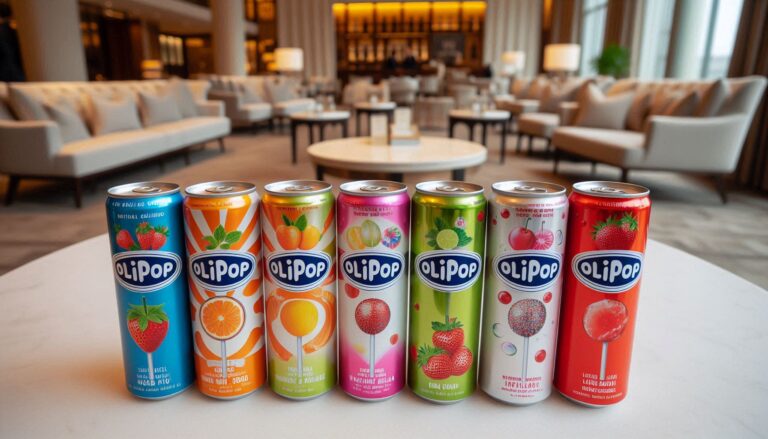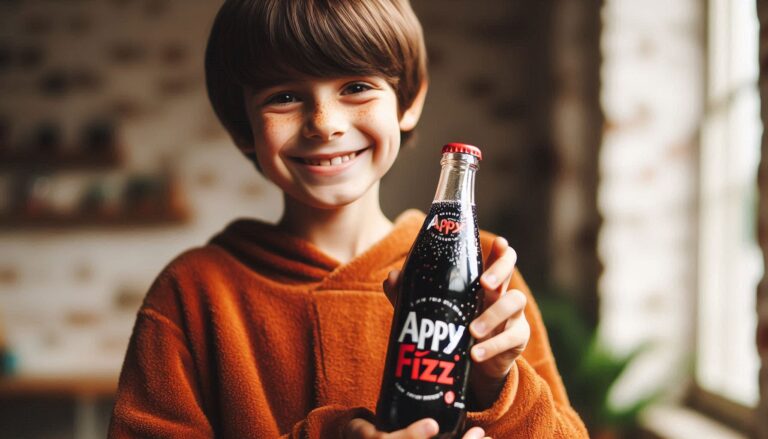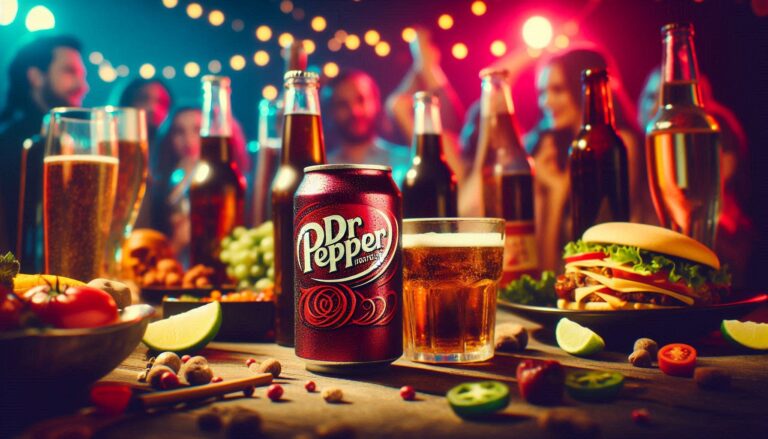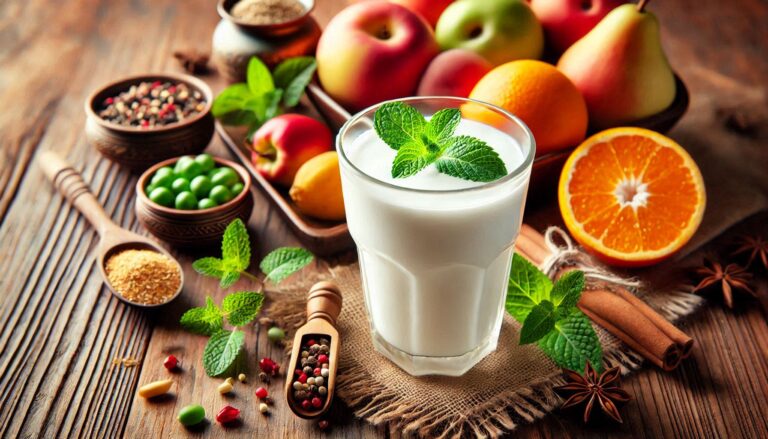Can Vodka Make You Fat? Exploring Its Impact on Your Waistline
There’s a lot of confusion about alcohol and its impact on weight. While it’s easy to assume that choosing vodka over beer or sugary cocktails makes you immune to gaining weight, the reality is a bit more nuanced. So, does vodka make you fat? To answer this, we need to look at how alcohol works in your body, how it affects metabolism, and the real impact of alcohol consumption on weight gain.
In this blog, we’ll break down the science behind alcohol’s effect on your body, highlight the calorie content in vodka, and explore how vodka might fit into your weight management strategy. By the end of this post, you’ll have a clearer understanding of whether drinking vodka affects your waistline and how you can enjoy it without compromising your health.
The Caloric Breakdown of Vodka: What Are You Really Drinking?
A shot of vodka may seem like a harmless, low-calorie drink. At about 65-70 calories per ounce, vodka is one of the lower-calorie spirits, especially when compared to other alcoholic drinks. However, the danger lies not in the vodka itself but in what you mix it with.
Mixers like soda, tonic, or fruit juices often contain a high amount of sugar, which can quickly elevate the total calorie count of your drink. For example, a vodka soda (vodka and sparkling water) could remain quite low in calories, while a vodka cranberry or vodka cola can push the calorie count significantly higher due to the sugary mixers.
According to the National Institute on Alcohol Abuse and Alcoholism (NIAAA), calorie content varies widely depending on the mixer, and sugar-laden drinks contribute significantly to the overall calorie count. (Source: National Institute on Alcohol Abuse and Alcoholism)
If you’re consuming vodka with sugary mixers regularly, the extra calories can contribute to weight gain over time. The best way to avoid this is to choose low-calorie mixers such as soda water, diet tonic water, or fresh citrus juice. These simple choices can keep the total calories in check, making it easier to enjoy vodka without packing on the pounds.
Alcohol Metabolism and Weight Gain: How Vodka Affects Your Fat-Burning Process
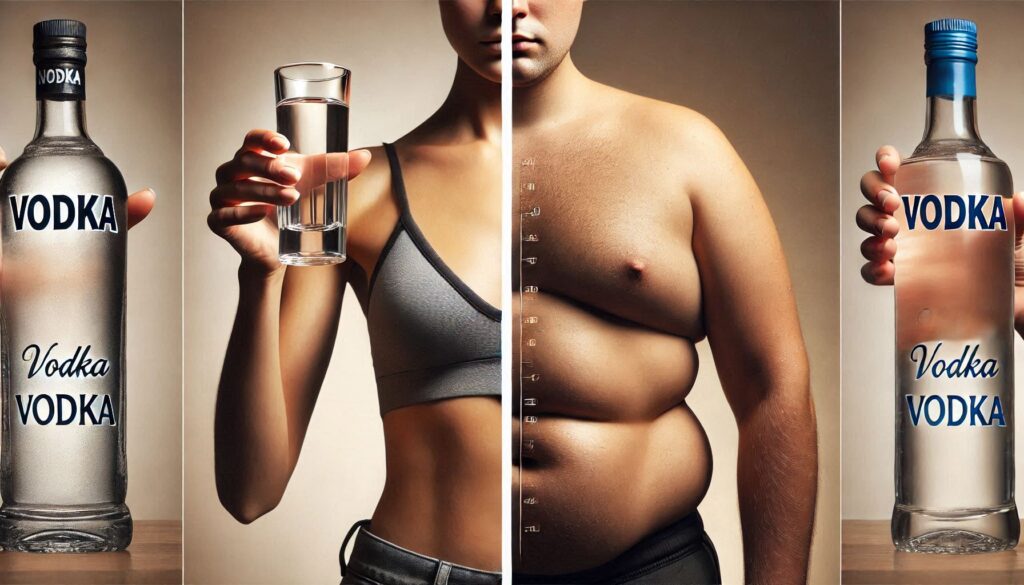
Alcohol, including vodka, doesn’t directly cause weight gain, but it does influence the way your body processes food and fat. When you consume alcohol, your body treats it as a priority toxin, meaning it will break down alcohol before other nutrients, including fats and carbohydrates. This is because alcohol is considered harmful and must be processed first to avoid toxicity.
Here’s the catch: while your body is busy metabolizing alcohol, the fat-burning process slows down. This means that even if you’re eating healthy or exercising, your body might temporarily stop burning fat while it deals with the alcohol. This shift in metabolic function can result in fat accumulation over time, especially if alcohol is consumed in excess.
Research published by the American Journal of Clinical Nutrition explains how alcohol inhibits fat metabolism by prioritizing its own breakdown, slowing down the body’s ability to burn fat. (Source: American Journal of Clinical Nutrition)
This effect doesn’t mean that one vodka drink will make you gain weight, but frequent drinking can lead to a cumulative effect where fat burning is constantly delayed. Combined with the additional calories from the alcohol itself and any added sugars from mixers, the result could be fat storage rather than fat loss.
Empty Calories and Nutritional Deficiency: Vodka’s Contribution to Weight Gain
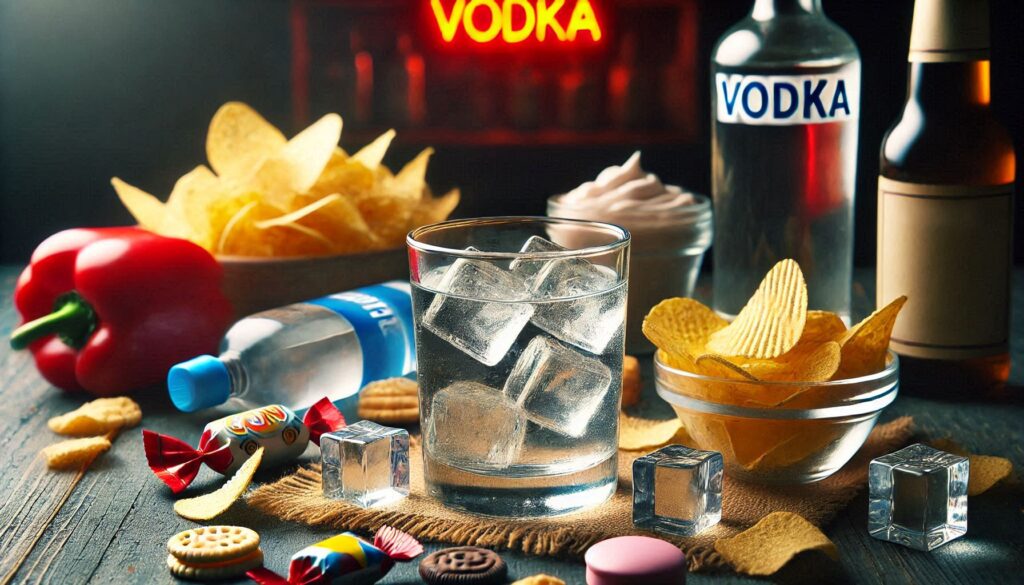
Vodka, like other alcoholic beverages, provides empty calories. This means that the calories you consume from vodka do not provide any nutritional value. While foods like fruits, vegetables, and lean proteins offer your body essential vitamins and minerals, alcohol has no real nutritional benefit.
Vodka is often labeled as a “ladies’ drink,” but did you know there’s more to this than just tradition? To learn about the cultural reasons behind this label, check out our article on Why Vodka is Called Ladies’ Drink.
When your body consumes alcohol, it provides quick energy, but without the nutrients your body needs to function optimally. This lack of nutritional value can lead to a calorie surplus, especially if alcohol is regularly consumed in large amounts. Over time, this can contribute to weight gain because the extra calories from alcohol aren’t being used for anything beneficial, so they end up stored as fat.
Another issue is that alcohol can reduce your willpower, making you more likely to snack on unhealthy foods. The lack of nutritional value, combined with a decreased ability to make healthy food choices, often leads to overeating, particularly when alcohol is involved. So, if you’re trying to lose weight or maintain a healthy lifestyle, understanding the concept of “empty calories” in vodka is key.
Vodka and Appetite: Why Alcohol Makes You Hungry

Many people have experienced the post-drink hunger pangs that can lead to binge eating or snacking on unhealthy food. So, why does alcohol make you feel hungrier? The answer lies in how alcohol affects the hormones that regulate hunger.
Alcohol increases levels of ghrelin, the hormone responsible for making you feel hungry. On top of that, alcohol lowers your inhibitions, making it harder to resist food. If you’ve ever found yourself reaching for a snack after a few drinks, you’re not alone – this is a physiological response. Unfortunately, those extra calories from overeating can be more than what you burned off during the day, leading to fat storage.
A study published in Psychoneuroendocrinology found that alcohol increases ghrelin levels, promoting hunger and overeating. (Source: Psychoneuroendocrinology Journal)
Additionally, alcohol’s effect on your blood sugar can make you crave high-carb, high-fat foods, which often leads to unhealthy eating choices. These foods contribute to the overall caloric surplus that causes weight gain.
Hormonal Imbalance and Fat Storage: Why Vodka Can Contribute to Belly Fat
When you consume alcohol, your body undergoes several hormonal changes that can make it easier to store fat. These changes include:
- Insulin Sensitivity: Drinking alcohol increases insulin levels, which in turn encourages the storage of fat, especially in the abdominal area.
- Cortisol Levels: Alcohol raises cortisol, the stress hormone. Elevated cortisol is associated with fat accumulation, particularly around the midsection, leading to belly fat.
- Ghrelin: As mentioned earlier, alcohol increases ghrelin, the hunger hormone. Elevated ghrelin levels lead to overeating, which can result in increased fat storage.
Studies in Obesity Reviews show that alcohol consumption is linked to increased cortisol levels, which leads to belly fat accumulation. (Source: Obesity Reviews)
The combination of these hormonal changes makes it more likely that alcohol, including vodka, will contribute to belly fat if consumed regularly and without caution.
Vodka’s Effect on Water Retention: Temporary Weight Gain
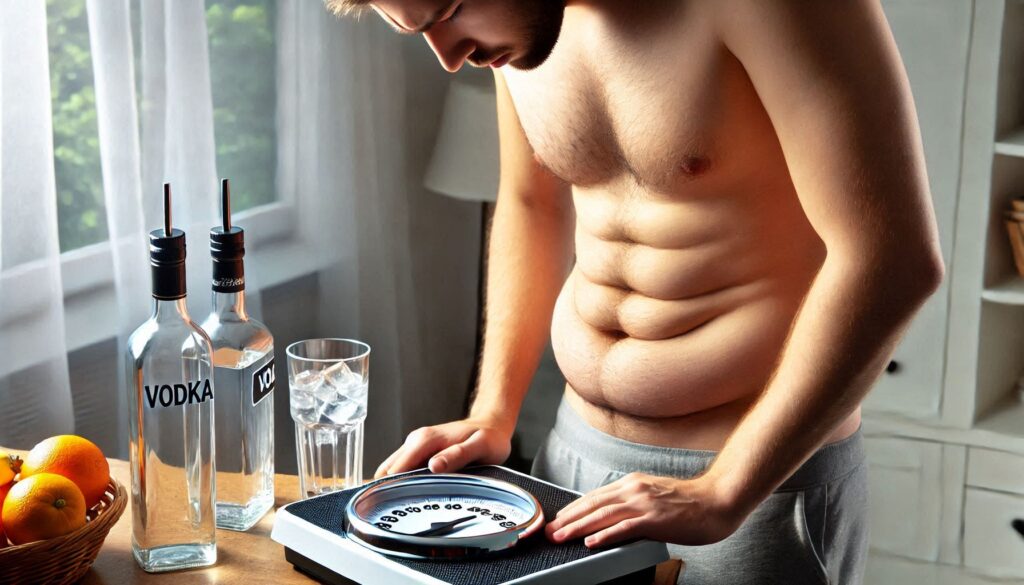
One immediate and short-term effect of drinking vodka is water retention. Alcohol, including vodka, is a diuretic, meaning it makes you urinate more frequently, leading to dehydration. In response, your body holds onto water to prevent dehydration, causing temporary bloating and the feeling of being “heavier.”
Though this isn’t actual weight gain from fat, the bloating can mask your true weight and make you feel puffier the day after drinking. Hydration is key here – drinking water alongside your vodka helps minimize the feeling of bloating and reduces the chance of water retention.
According to the Mayo Clinic, alcohol’s diuretic properties can lead to dehydration and temporary water retention, contributing to bloating. (Source: Mayo Clinic)
Can You Still Lose Weight While Drinking Vodka?
Yes, it’s possible to lose weight while drinking vodka, but moderation is the key. The calories in vodka are lower than many other alcoholic beverages, and it doesn’t have to derail your weight loss plan as long as you take a few basic steps:
- Drink in moderation: Limit your alcohol intake to avoid excess calories.
- Choose low-calorie mixers: Opt for soda water, diet tonic, or lemon juice instead of sugary sodas or fruit juices.
- Stay hydrated: Drink plenty of water to counteract dehydration and reduce bloating.
- Balance with your diet and exercise: Make sure you’re maintaining a healthy diet and regular exercise routine to offset the occasional indulgence in vodka.
It’s about making informed choices and being mindful of your overall lifestyle. Drinking in moderation, especially when paired with healthy habits, can allow you to enjoy vodka without compromising your weight loss efforts.
Conclusion: Is Vodka Making You Fat?
So, does vodka make you fat? The answer isn’t as straightforward as a simple yes or no. While vodka itself isn’t particularly high in calories compared to other alcoholic drinks, it’s important to consider the mixers, quantity, and frequency of consumption. Regular alcohol consumption, especially combined with unhealthy food choices, can contribute to weight gain over time.
To enjoy vodka without sabotaging your health goals, moderation is key. Be mindful of the mixers you choose, stay hydrated, and balance alcohol consumption with a healthy diet and exercise routine. By following these principles, you can enjoy your favorite drink without worrying about weight gain.

